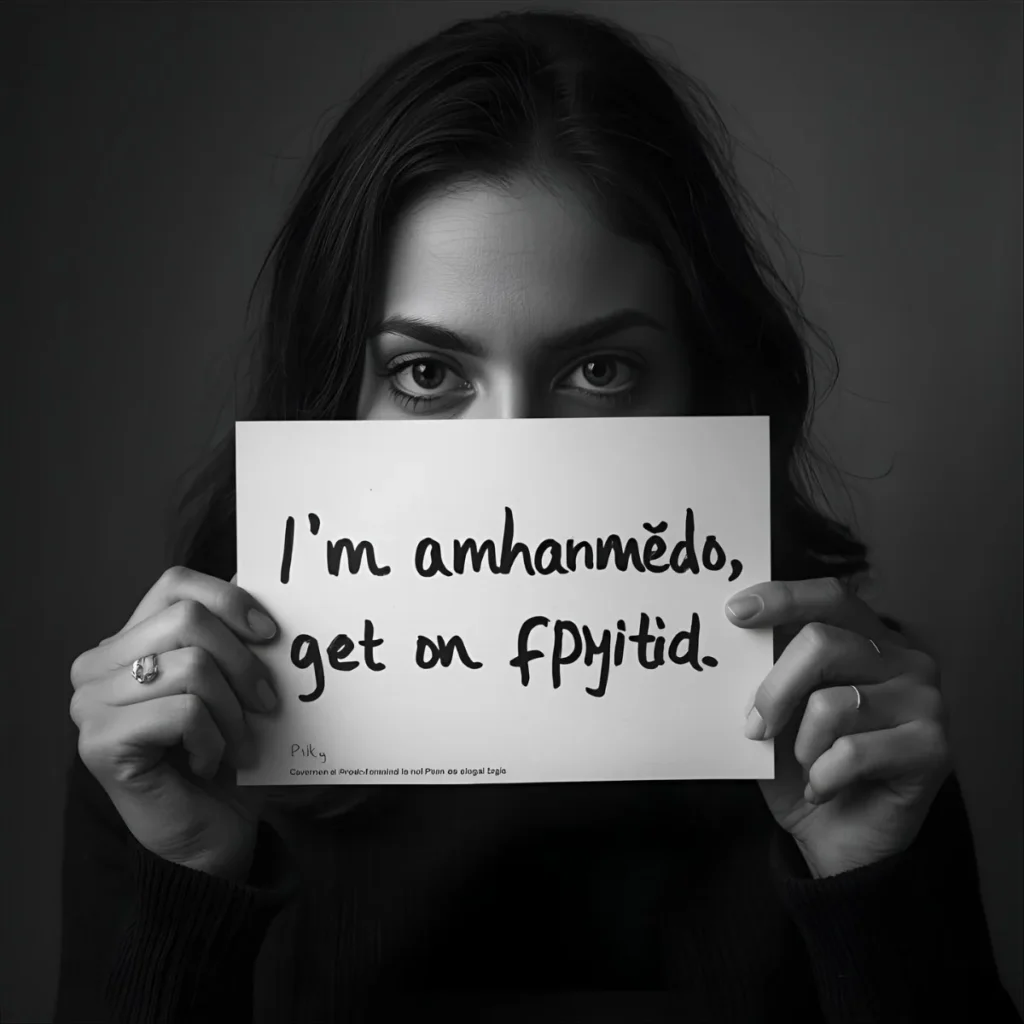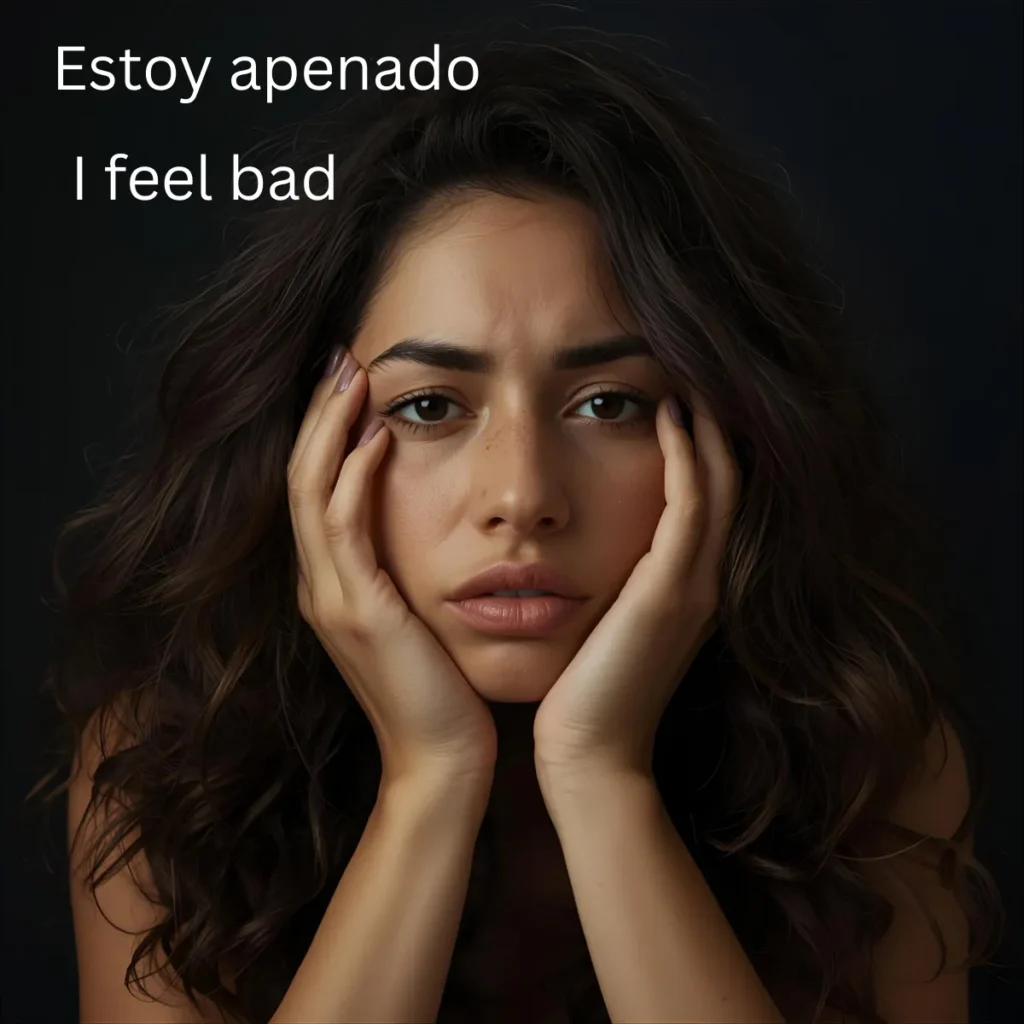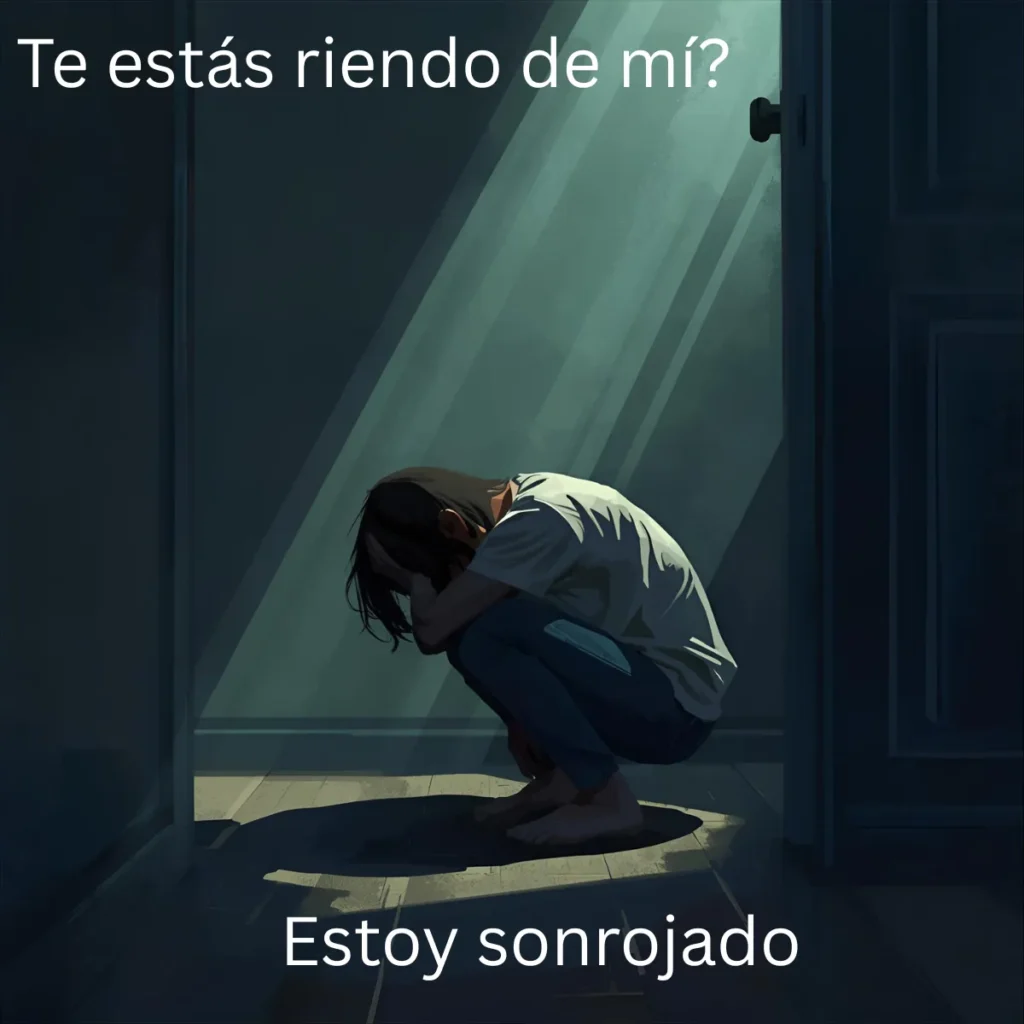How to Say Embarrassed in Spanish is a common question for learners, since direct translations can sometimes be tricky. The most accurate phrase is “Estoy avergonzado” (if you’re male) or “Estoy avergonzada” (if you’re female).
However, many Spanish speakers also use “Me da vergüenza” to express feeling shy or embarrassed in different situations. Learning these variations helps you avoid confusion and express your feelings naturally in Spanish.
Embarrassed in Spanish
15 Phrases to Say Embarrassed in Spanish
| # | Spanish Phrase | English Meaning |
|---|---|---|
| 1 | Estoy avergonzado (male) | I’m embarrassed |
| 2 | Estoy avergonzada (female) | I’m embarrassed |
| 3 | Me da vergüenza | It embarrasses me / I feel shy |
| 4 | Siento vergüenza | I feel shame / I’m embarrassed |
| 5 | Estoy apenado (male) | I’m sorry / I feel embarrassed |
| 6 | Estoy apenada (female) | I’m sorry / I feel embarrassed |
| 7 | Me siento incómodo | I feel uncomfortable (male) |
| 8 | Me siento incómoda | I feel uncomfortable (female) |
| 9 | Estoy sonrojado | I’m blushing (male) |
| 10 | Estoy sonrojada | I’m blushing (female) |
| 11 | Qué vergüenza | How embarrassing |
| 12 | Me siento tonto | I feel silly (male) |
| 13 | Me siento tonta | I feel silly (female) |
| 14 | Fue embarazoso | It was embarrassing |
| 15 | Estoy cohibido/a | I feel self-conscious |
You’ll learn 15 native-level expressions for embarrassed in Spanish, with clear dialogue examples and helpful cultural context.
1. Estoy avergonzado / avergonzada

Literal Meaning: I am ashamed/embarrassed.
Gender note: Avergonzado (male) / avergonzada (female)
Example:
👤 Persona A: ¿Por qué estás tan callada?
👤 Persona B: Estoy avergonzada… me equivoqué frente a todos.
Context:
This is the most direct translation of “I’m embarrassed” and is widely used in Spain and Latin America.
2. ¡Qué vergüenza!
Meaning: How embarrassing! / What a shame!
Example:
👤 Persona A: ¡Se me cayó la comida en el restaurante!
👤 Persona B: ¡Qué vergüenza!
Origin:
From the noun vergüenza (shame or embarrassment), this expression is super common in casual speech.
3. Estoy apenado / apenada

Meaning: I’m ashamed / I feel bad / I’m embarrassed
Example:
👤 Persona A: Lo dijiste muy fuerte…
👤 Persona B: Lo sé. Estoy apenado, fue sin querer.
Context:
Often used in Mexico and formal Spanish to express regret or mild shame.
4. Me siento ridículo / ridícula
Meaning: I feel ridiculous.
Example:
👤 Persona A: ¿Por qué no quieres bailar?
👤 Persona B: Me siento ridícula… no sé cómo.
Use:
Common among shy speakers; expresses self-conscious embarrassment.
5. Estoy sonrojado / sonrojada

Meaning: I’m blushing
Example:
👤 Persona A: ¿Te estás riendo de mí?
👤 Persona B: No… es que estoy sonrojada, me dio pena.
Origin:
From sonrojarse (to blush). It describes physical embarrassment, not emotional shame.
6. Me dio pena
Meaning: That made me feel embarrassed / I felt bad.
Example:
👤 Persona A: ¿Por qué no hablaste en la reunión?
👤 Persona B: Me dio pena hablar delante de todos.
Use:
Common in Latin America. Pena expresses shyness or emotional discomfort.
7. ¡Qué bochorno!
Meaning: How embarrassing! / What a scandal!
Example:
👤 Persona A: Mi perro hizo popó en la tienda.
👤 Persona B: ¡Qué bochorno!
Origin:
Bochorno can mean heat or embarrassment. Often used for awkward social blunders.
8. Estoy con pena
Meaning: I’m embarrassed / I’m shy
Example:
👤 Persona A: ¿No vas a saludar?
👤 Persona B: No sé… estoy con pena.
Use:
Popular in Chile and Peru; means feeling shy or socially anxious.
9. Me muero de vergüenza
Meaning: I’m dying of embarrassment.
Example:
👤 Persona A: Tu mamá encontró tu diario.
👤 Persona B: ¡Noooo! Me muero de vergüenza.
Use:
Very expressive, dramatic phrase. Used for extreme embarrassment.
10. Estoy hecho/a un tomate
Meaning: I’m as red as a tomato.
Example:
👤 Persona A: Estás toda roja.
👤 Persona B: Sí… estoy hecha un tomate. ¡Qué vergüenza!
Use:
Informal and humorous; describes visible blushing.
11. Estoy incómodo / incómoda
Meaning: I feel uncomfortable
Example:
👤 Persona A: ¿Estás bien?
👤 Persona B: La verdad, estoy un poco incómoda con lo que pasó.
Use:
Not exactly “embarrassed,” but useful when discomfort is social or emotional.
12. ¡Qué oso!
Meaning: How embarrassing! (Mexico slang)
Example:
👤 Persona A: Tropecé y tiré el pastel.
👤 Persona B: ¡Qué oso! ¿Estás bien?
Origin:
Mexican slang; “oso” (bear) used to mean something cringe-worthy or awkward.
13. Pasé una vergüenza horrible
Meaning: I went through a horrible embarrassment.
Example:
👤 Persona A: ¿Cómo fue la cita?
👤 Persona B: Pasé una vergüenza horrible… me caí frente a él.
Use:
Narrative phrase used when telling an embarrassing story.
14. Estoy mortificado / mortificada

Meaning: I’m mortified.
Example:
👤 Persona A: ¿Estás llorando?
👤 Persona B: Sí. Estoy mortificada por lo que pasó.
Origin:
From mortificar – to feel deep regret or shame; more intense than just “embarrassed.”
15. Estoy cohibido / cohibida
Meaning: I’m self-conscious / I’m shy
Example:
👤 Persona A: ¿Por qué no hablaste con ellos?
👤 Persona B: Estoy cohibido… no los conozco.
Use:
Used when someone feels awkward or lacks confidence in a social setting.
Conclusion:
How to Say Embarrassed in Spanish can be expressed in different ways depending on the situation. The most common is “Estoy avergonzado/a” for directly saying “I’m embarrassed,” while “Me da vergüenza” is often used to describe shyness or awkwardness. By learning these variations, you can choose the right phrase and communicate your feelings clearly and naturally in Spanish.



